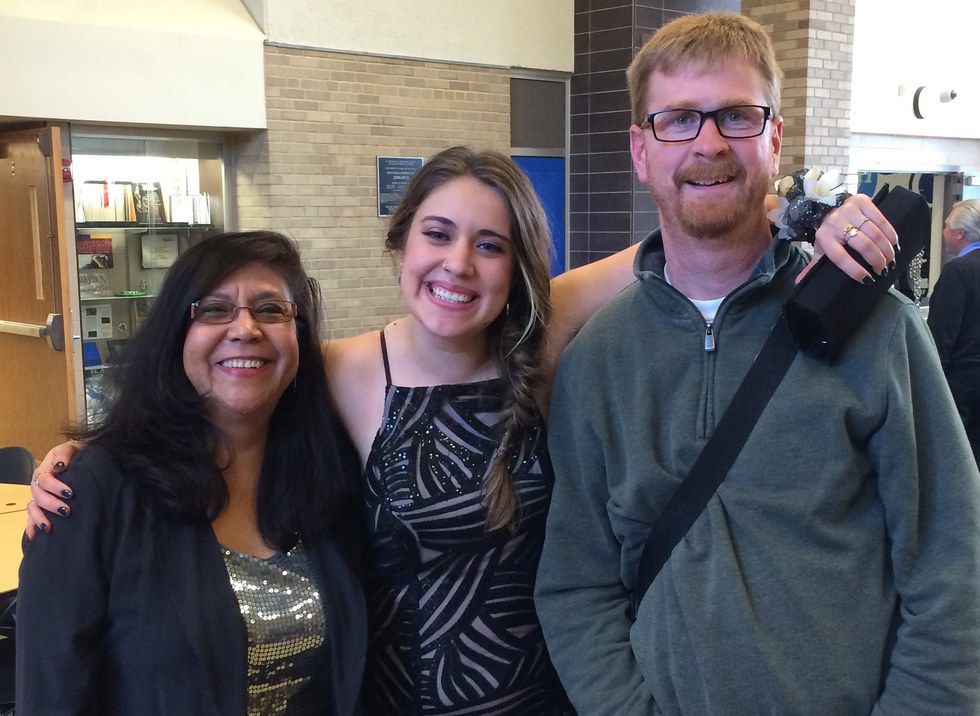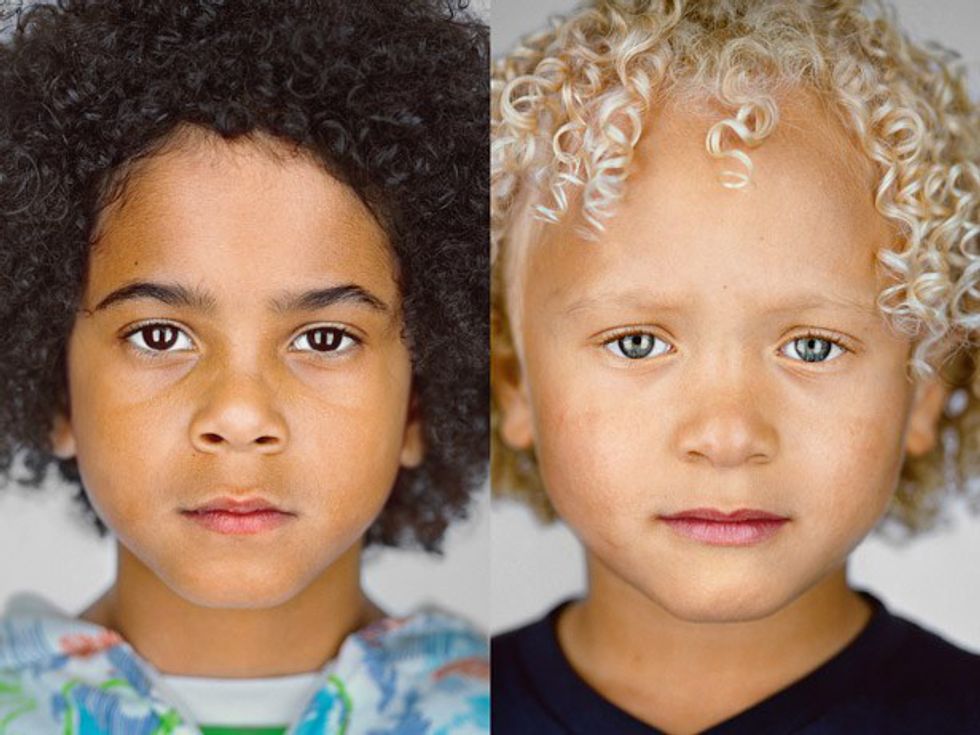When I was growing up, I thought that my family was just your normal, stereotypical nuclear family. Except, it wasn’t like everyone else's family. Like most children, I didn’t understand the concept of race until I was in grade school in around first or second grade. Even then, it didn’t really hit me until I started seeing other kid’s families and how they had parents with the same color, instead of one or the other. That was when it really hit me that my family was different—not bad— but just different.
My mom was originally born and raised in Mexico City, Mexico up until the 90’s when she decided to move to the United States. More specifically, she moved to Minnesota while my dad grew up in north Minneapolis all his life. So, just to make things clear, my mom is a brown woman and my dad is a white man. My parent’s love story is just like any other love story, except it starts to get complicated once you bring race into things.
Mind you, when my parents first started dating, there was also a language barrier as my mom hadn’t started learning English yet and my dad didn’t know any Spanish. While many people think that racism went away as soon as slavery was abolished and schools were desegregated in the 1950s, that’s not the case. It's not even the case in the year 2017. When my dad first brought my mom home to his family, she was met with a lot of discrimination and prejudice by my dad’s family and some of his friends.
Since my parents had never been in an interracial relationship before, this was all a new experience for them. Since I’ve grown up, I’ve been asked a lot of questions about my family; some of them have been out of curiousness while others have been extremely rude and derogatory towards my family, a family that I cherish so much. I have been asked if my mom married my dad solely for a citizenship visa, if my mom was here illegally, if she was a “wetback”, how my dad felt about being a “traitor” to the white race and many more. With that, I’ve come to learn that not everyone is as accepting of my family as I am.
A lot of the time, being a biracial kid feels very odd and like you’re an outsider. There’s a line from Earl Sweatshirt’s rap song “Chum” that says “too black for the white kids, and too white for the blacks”. I’ve never related so much to a lyric before until I had heard that. I had never truly fit in one racial category until the year 2000 when multiracial people, like myself, were able to mark two different races on the United States Census.
Because I look very much like a white person, many people ignore the side of me that is very much also Latina. With that being said, when I do speak out on issues affecting the Latino community, I’m met with confused and puzzled looks as if they were about to say, “What the heck does this white girl know?”
Even up through my first semester of college, I took a Sociology class on what "whiteness" means and my professor, while as nice as a person can be, still thought of me as this almost rare, shiny “Pokemon”— always asking for my opinion on both people of color and white actions and thoughts. I know people mean well, but the idea that a biracial person is there for educating or even as an exhibit to show people a part of cross-genealogy can be quite demeaning and makes other biracial people feel as if we don’t have a spot in the world.
The age old question “But what are you?” has usually been asked out of curiosity, but it still (again) makes biracial people feel awkward and out of place within the world. According to National Geographic, by the year 2050, "by 2010, the number of multiracial children born were two or more races." That means that, while I may have grown up feeling like an outsider, only knowing one other biracial kid (who was black and white and grew up in an entirely different cultural setting than I), my future children’s children will probably be growing up surrounded by families that reflect what their household is, and to be honest I’ve never been more excited for the future to come.



























